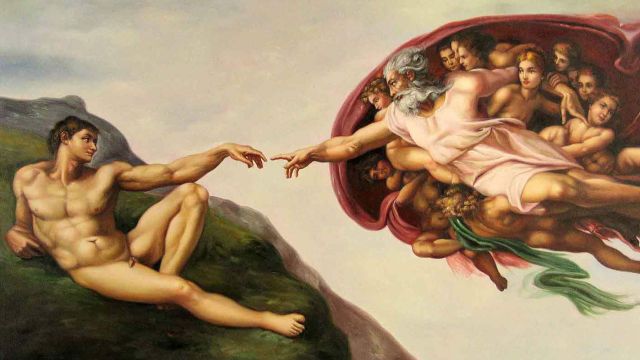Let’s Shake Up Presidential Debates

As the candidates gear up for Tuesday night’s second presidential debate, it occurs to me how strange a ritual this is. President Obama, according to Helene Cooper of the New York Times, is focusing his preparation on tactics rather than substance:
This time, instead of focusing on the nuts and bolts of debate facts — no one thinks the president needs to bone up on American troop withdrawals from Afghanistan’s Korengal Valley, for instance — Mr. Obama is practicing how to challenge Mr. Romney, something he inexplicably shied away from in Denver on Oct. 3.
The modern presidential debate has been a regular part of campaigns since 1976 with formats that have varied within a rather narrow range — from lectern sound bite exchanges to roundtable discussions to town hall meetings. Maybe it’s time to shake things up. And I don’t mean a banal move like taking questions via Twitter or Facebook, as we saw in 2008. Forget social media. I propose going seriously old-school. I mean Lincoln-Douglas style, with a twist.
Why the need for a change? Consider how the media has covered the first two debates this fall. Fact-checking and careful analyses of the substance of the candidates’ answers have taken a backseat to parsing the debaters’ facial expressions, attitudes, emotional states, flag lapel pin size, level of machismo, wardrobe choices, tooth gleam, enthusiasm and hand gestures. I succumbed to this trend in my own assessment of the first Romney-Obama debate when I wrote that the president looked “hollow eyed, uninspired and uncharacteristically nervous” and when I commented during a live-blog at the Economist that Joe Biden was “chummier” than Paul Ryan.
Should any of these factors matter when choosing a president? A few days ago, MSNBC’s Lawrence O’Donnell stated the case clearly: “We are not electing a Debater-in-Chief, we are electing a Commander-in-Chief.” Governing and debating, he implied, draw on utterly different skill sets:
These debates are about finding the best president, not the best memorizer. If it’s a memorizer you want, then Kevin Klein or any other American-born actor who has learned all 1,495 lines of Hamlet, the biggest part Shakespeare ever wrote deserves your vote.
I think this critique is misplaced. Yes, we don’t expect, or want, candidates to memorize lines to be delivered as speeches in debates. When Paul Ryan did this last week, he looked too well practiced and his remarks seemed canned. But we should want our presidents to conversant in the details of domestic and foreign policy. We should care if they know the names of world leaders and understand the complexities of international conflicts. We should demand that they are able to lay out, clearly and consistently, positions on the major issues.
So I think O’Donnell’s suggestion that each candidate get the debate questions in advance, “be allowed to bring giant briefcases full of notes” and to have “at least one staff member to sit beside the candidate throughout the debate” is a recipe for a ludicrously cumbersome and viewer-unfriendly affair. Imagine Mitt Romney digging through manila folders for studies to back up his claim that his tax policy wouldn’t really cost $4.8 trillion over 10 years, or President Obama having to consult with a staffer before responding to a question on Medicare reform. C-Span has its lovers, but this is no way to stage a presidential debate.
The only thing missing from O’Donnell’s list of suggestions is adding an “ask the audience” option. We don’t need more crutches for candidates. We need opportunities for real debates on the most pressing political questions of the day.
So at the risk of joining sides with Newt Gingrich, who suggested something like this idea last fall, I propose that at least one of the debates during the 2016 presidential cycle pay homage to the celebrated series of seven debates between Abraham Lincoln and Stephen Douglas during their 1858 U.S. Senate battle. These debates were unmoderated, in-depth, rhetorically and argumentatively lively encounters on the question of slavery in the United States. They lasted three hours each, with one man speaking for an hour, followed by the opponent’s 90-minute reply and the first speaker’s 30-minute rejoinder. The debates were not models of intellectual purity: both men launched their share of personal attacks. But anyone witnessing the debates was privy to a thoughtful, lengthy analysis of an issue central to the future of the polity. If candidates in 2016 would agree to one or two such debates — with the addition of candidates posing questions directly to one another, and perhaps a somewhat pared-down time frame — they could encourage voters to think more reflectively and deeply about budget choices, social issues or principles of foreign policy. The potential for the enlightenment of the electorate is huge.
Instead, we have the weak tea of the modern presidential debate. After Tuesday night’s town hall meeting, everyone will be talking about whether President Obama was able to assert himself more forcefully and land some rhetorical punches on Mitt Romney. There will be discussions of body language and the color of the candidates’ ties. But it is safe to say that few of us will find the discussion to be an enlightening exchange about the fateful questions facing the United States.
Follow Steven Mazie on Twitter: @stevenmazie





